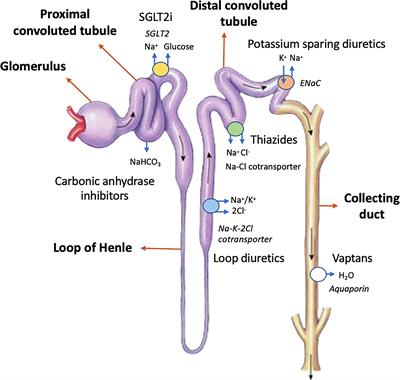Are you tired of feeling bloated and swollen?
Do you suffer from high blood pressure and are looking for a solution?
Look no further!
Diuretics might just be the answer you’ve been searching for.
These miraculous medications not only help flush out excess fluid from your body, but they can also be incredibly beneficial for a range of conditions.
However, as with any medication, it’s important to understand their potential side effects and how they might interact with other medications.
To ensure you have all the information you need, consult with a doctor who can provide guidance on potential alternatives.
So, let’s dive into the world of diuretics and discover how they can help enhance your health and well-being.
diuretics
Diuretics, also known as water pills, are medications that increase the amount of water and salt expelled from the body as urine.
They are commonly prescribed to treat high blood pressure and other conditions such as congestive heart failure.
There are three types of prescription diuretics: thiazide, loop, and potassium-sparing diuretics.
Common side effects of diuretics include low or high levels of potassium or sodium in the blood, headache, dizziness, increased blood sugar, muscle cramps, increased cholesterol, skin rash, gout, and diarrhea.
Rare but serious side effects can include allergic reactions, kidney failure, and irregular heartbeat.
It is important to talk to your doctor about any bothersome side effects and not stop taking diuretics without consulting them.
Some medications may interact with diuretics, so it is recommended to consult with a doctor for more information on diuretics and other treatment options.
Key Points:
- Diuretics increase the amount of water and salt expelled from the body as urine.
- They are commonly used to treat high blood pressure and congestive heart failure.
- There are three types of prescription diuretics: thiazide, loop, and potassium-sparing diuretics.
- Common side effects include low or high levels of potassium or sodium in the blood, headache, dizziness, increased blood sugar, muscle cramps, increased cholesterol, skin rash, gout, and diarrhea.
- Rare but serious side effects can include allergic reactions, kidney failure, and irregular heartbeat.
- It is important to consult with a doctor about any bothersome side effects and not stop taking diuretics without their advice. Some medications may interact with diuretics, so it is recommended to consult with a doctor for more information on diuretics and other treatment options.
diuretics – Watch Video
💡
Pro Tips:
1. Diuretics were first used in ancient Greece, where physicians prescribed them as herbal remedies to treat edema, or fluid retention.
2. The word “diuretic” comes from the Greek word “diourein,” which means “to urinate through.” This accurately describes the intended effect of diuretics – increasing urine production.
3. Some diuretics work by inhibiting the reabsorption of sodium in the kidneys. This leads to increased sodium excretion, prompting a diuretic effect and subsequent reduction in fluid retention.
4. Diuretics are commonly used not only to treat conditions like high blood pressure and heart failure but also to aid in weight loss. However, any weight loss resulting from diuretic use is primarily due to water loss and not fat loss.
5. While diuretics are generally safe when used as prescribed, they may lead to potential side effects such as electrolyte imbalances or dehydration if not closely monitored. Therefore, it’s essential to use diuretics under medical supervision.
1. What Are Diuretics?
Diuretics, commonly referred to as water pills, are medications designed to increase the excretion of water and salt from the body as urine. They are frequently prescribed to individuals with high blood pressure or conditions such as congestive heart failure. By promoting the removal of excess fluid from the body, diuretics help to alleviate the strain on the heart and reduce the volume of blood flowing through the blood vessels, ultimately leading to a decrease in blood pressure.
- Diuretics are medications that increase the excretion of water and salt from the body as urine.
- They are commonly referred to as water pills.
- Diuretics are prescribed for individuals with conditions such as high blood pressure or congestive heart failure.
- By promoting the removal of excess fluid, diuretics help reduce strain on the heart.
- The decrease in blood volume leads to a decrease in blood pressure.
Diuretics, commonly referred to as water pills, are medications designed to increase the excretion of water and salt from the body as urine. They are frequently prescribed to individuals with high blood pressure or conditions such as congestive heart failure. By promoting the removal of excess fluid from the body, diuretics help to alleviate the strain on the heart and reduce the volume of blood flowing through the blood vessels, ultimately leading to a decrease in blood pressure.
2. Types of Diuretics
There are three main types of diuretics: thiazide diuretics, loop diuretics, and potassium-sparing diuretics. Thiazide diuretics, such as hydrochlorothiazide, work by inhibiting the reabsorption of sodium and chloride in the kidneys, thus promoting the excretion of water and electrolytes. Loop diuretics, such as furosemide, act on the loop of Henle in the kidney, inhibiting the reabsorption of sodium, chloride, and potassium. This leads to a greater loss of water and electrolytes. Potassium-sparing diuretics, like spironolactone, work by increasing water excretion while retaining potassium, thereby preventing potassium deficiency, a common side effect of other diuretics.
3. Common Side Effects of Diuretics
While diuretics can be beneficial in treating various conditions, they can also produce a range of side effects. Common side effects of diuretics include abnormal electrolyte levels, such as low or high potassium and sodium levels, which can lead to muscle cramps, weakness, or irregular heartbeat. Other potential side effects include headaches, dizziness, increased thirst, elevated blood sugar levels, increased cholesterol levels, skin rashes, gout, and diarrhea. It is important to monitor these side effects and discuss them with your healthcare professional.
4. Rare But Serious Side Effects
Although rare, serious side effects can occur with the use of diuretics. One of these is an allergic reaction, which may manifest as difficulty breathing, hives, or swelling of the face, lips, tongue, or throat. Another serious side effect is kidney failure, particularly in individuals with pre-existing kidney problems. Diuretics can also cause an irregular heartbeat, which should be promptly addressed by a healthcare professional.
If you experience any of these rare but serious side effects, seek immediate medical attention.
- Allergic reactions (difficulty breathing, hives, swelling)
- Kidney failure (especially in those with pre-existing kidney problems)
- Irregular heartbeat
“If you experience any of these rare but serious side effects, seek immediate medical attention.”
5. When to Consult Your Doctor
If you experience bothersome side effects while taking diuretics, it is important to consult your doctor. They may be able to adjust your medication dosage, switch you to a different type of diuretic, or recommend additional medications to mitigate any side effects. Your doctor will consider your specific medical history and individual needs to determine the most appropriate course of action.
6. Importance of Not Stopping Diuretic Use Without Consulting a Doctor
It is crucial not to abruptly stop taking diuretics without consulting your doctor. Suddenly discontinuing the medication can lead to a rapid increase in blood pressure and fluid retention, which may exacerbate your underlying condition.
Your doctor can provide guidance on how to safely taper off the medication if it is no longer required or suggest alternative treatment options.
- Consult your doctor before stopping diuretics abruptly.
- Abrupt discontinuation can lead to increased blood pressure and fluid retention.
- Your doctor can provide guidance for tapering off or suggest alternatives.
7. Medications That May Interact With Diuretics
Several medications have the potential to interact with diuretics, altering their effectiveness or increasing the risk of side effects. For example, cyclosporine, a medication used to suppress the immune system, may cause kidney damage when combined with diuretics. Certain antidepressants, such as fluoxetine and venlafaxine, can also interact with diuretics, possibly leading to a decrease in their efficacy. Other medications that may interact include lithium, used for bipolar disorder, and digoxin, a medication for heart conditions. It is crucial to inform your doctor of any other medications you are taking to avoid potential interactions.
8. Consult a Doctor for More Information
Given the wide range of potential side effects and interactions, it is essential to consult with a healthcare professional for more detailed information on diuretics. Your doctor can provide personalized advice tailored to your medical history, current condition, and potential risks associated with diuretic use. They can also discuss alternative treatment options, ensuring you make informed decisions regarding your healthcare.
9. Diuretics for High Blood Pressure
Diuretics are commonly prescribed for individuals with high blood pressure, as they help decrease excess fluid in the blood vessels, reducing the volume of blood the heart needs to pump. By lowering blood pressure, diuretics alleviate the strain on the heart and reduce the risk of cardiovascular complications. However, it is important to take diuretics as prescribed and regularly monitor blood pressure to ensure optimal control.
10. Diuretics for Congestive Heart Failure
Congestive heart failure is a condition where the heart fails to pump blood effectively, causing fluid buildup in different parts of the body. Diuretics are essential in treating this condition as they aid in removing excess fluid and reducing swelling (edema) in the legs, lungs, and other affected areas. By relieving fluid congestion, diuretics effectively alleviate symptoms associated with congestive heart failure, including shortness of breath and fatigue. Nonetheless, it is crucial to have close monitoring by a healthcare professional to determine the correct dosage and evaluate the treatment’s efficacy.
💡
You may need to know these questions about diuretics
What is the most common diuretic?
Loop diuretics are the most common type of diuretics. They are commonly prescribed to treat conditions such as congestive heart failure and kidney diseases. Unlike thiazides, loop diuretics work by inhibiting the reabsorption of sodium and chloride in the loop of Henle in the kidneys, leading to increased urine production. Loop diuretics are often used when a more potent diuretic effect is needed, such as in cases of severe fluid overload.
What is the #1 most common side effect of diuretics?
The most common side effect of diuretics, such as water pills, is increased frequency of urination. This occurs because diuretics work by increasing the production of urine and promoting the removal of excess fluid from the body. Although this side effect is expected and usually well-tolerated, it is important for individuals taking diuretics to ensure adequate hydration to prevent dehydration. Additionally, it is advisable to plan activities and access to bathroom facilities accordingly.
Who should not take diuretics?
Individuals who have severe dehydration, anuria, or an electrolyte abnormality should not take diuretics. Diuretics may exacerbate dehydration by further increasing fluid loss and could potentially worsen anuria by reducing urine production. Moreover, individuals with a known hypersensitivity to diuretic drugs should avoid taking them as it could lead to an adverse allergic reaction. It is crucial to consult with a healthcare professional before considering diuretics to ensure they are safe and appropriate for one’s specific circumstances.
What is a side effect of giving diuretics?
In addition to the potential risks of dizziness and postural hypotension, administering diuretics can lead to electrolyte imbalances. By promoting the loss of excess fluids, diuretics can disrupt the balance of important electrolytes like potassium, sodium, and magnesium in the body. This electrolyte imbalance can potentially lead to muscle weakness, irregular heartbeat, and even kidney problems. Thus, it is crucial to monitor and manage electrolyte levels when prescribing diuretics to mitigate such a side effect.
Reference source
https://www.mayoclinic.org/diseases-conditions/high-blood-pressure/in-depth/diuretics/art-20048129
https://www.healthline.com/health/diuretics
https://www.health.harvard.edu/heart-health/tips-for-taking-diuretic-medications
https://www.everydayhealth.com/diuretic/guide/



